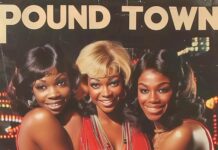
*Medical Marijuana is estimated to be worth $22 billion by 2020 — and black stars like Snoop Dogg and Whoopi Goldberg are looking to cash in.
Last month, Goldberg announced that she’s launching a medical-marijuana company with Maya Elisabeth, focusing on a line of products designed to provide relief from menstrual cramps. The company, Maya & Whoopi, will offer items such as cannabis edibles, topical rubs, and a THC-infused bath soak that is describes as “profoundly relaxing.”
Last year, Snoop Doog launched his own line of marijuana with an event in Colorado, and Willie Nelson announced his own cannabis company, Willie’s Reserve. In February, actress-comedian Roseanne Barr struck an agreement to open the Santa Ana, California, medical marijuana dispensary called Roseanne’s Joint.
READ RELATED STORY: Are Black Americans Left Out of Country’s Economic Weed Boom?
For marijuana companies, signing a famous face to endorse its product has an obvious appeal, and many celebrities consider it to be equally rewarding to align with medical marijuana. The Wrap spoke to experts in the marijuana field to better understand the celebrity-cannabis craze. To put it simply, money is the primary motivation.
However, Taylor West, deputy director of the National Cannabis Industry Association, cautioned that celebrities entering the weed business should not be, “or even appear to be, motivated completely by money. The celebrity endorsement game is a money-driven game, and I think everybody understands that. But this is an industry that, at its root, an ongoing social justice movement.”
Allen St. Pierre, director of NORML (National Organization for the Reform of Marijuana Laws), told The Wrap that the legal-marijuana industry is estimated to generate “up to $22 billion,” by 2020. “So it’s big money,” St. Pierre noted.
But… big money for who?
Certainly not for the millions of black Americans who have been convicted of cannabis crimes, only to now see white folks (primarily white males, of course) be the primary growers and owners of the dispensaries. White privilege is real, y’all.
Decades of statistics show “drug use and sales happen consistently at around the same rate across racial lines,” yet in this white supremacist society in which we live, African Americans are disproportionately targeted for criminal convictions.
As Black Enterprise notes, “the consequences of a marijuana arrest can be severe and often lead to loss of employment, child custody, business loans, professional and driver’s licenses, student aid, and public housing.” The likelihood of becoming the owner of a cannabis dispensary if you’re a convicted drug felon is slim to none.
In most states, the only people allowed to grow or sell weed legally are people without any prior arrests and those with prior medical marijuana industry experience. Clearly this leaves out millions of black Americans with drug convictions.
However, blacks with celebrity status are allowed to raise their profiles even higher with a marijuana brand.
“In our celebrity-obsessed world and country, if you’re going to be in the world of retail marketing and products, having a famous, well-known, respected celebrity … in some ways, it’s like standard Marketing 101,” St. Pierre said.
We Publish News 24/7. Don’t Miss A Story. Click HERE to SUBSCRIBE to Our Newsletter Now!





